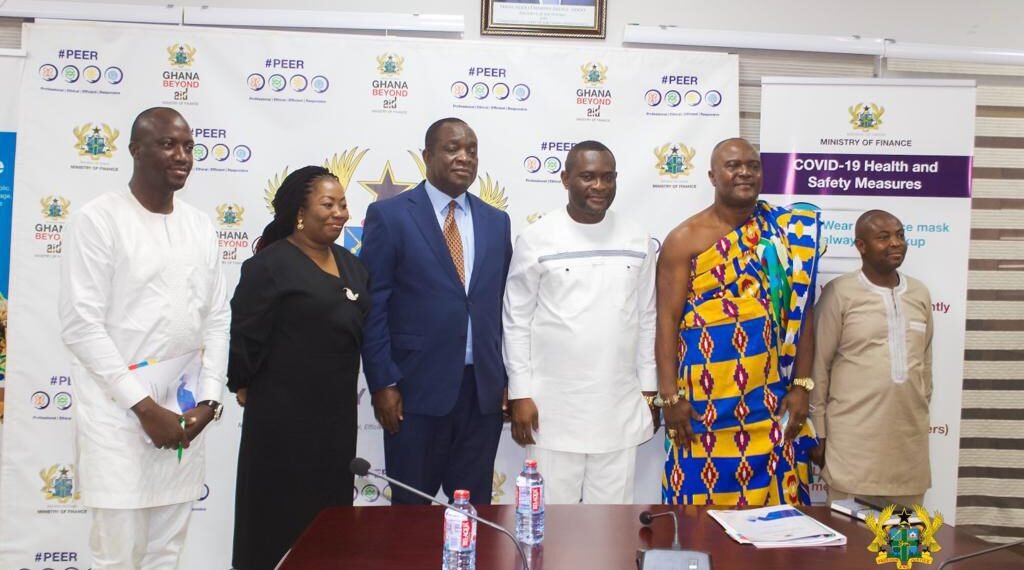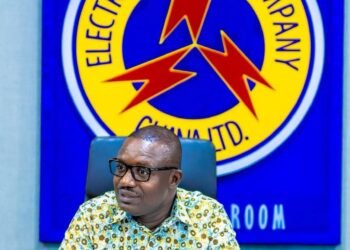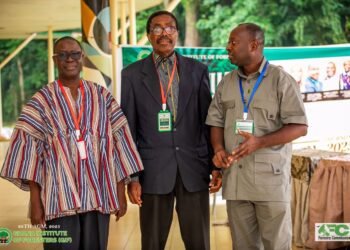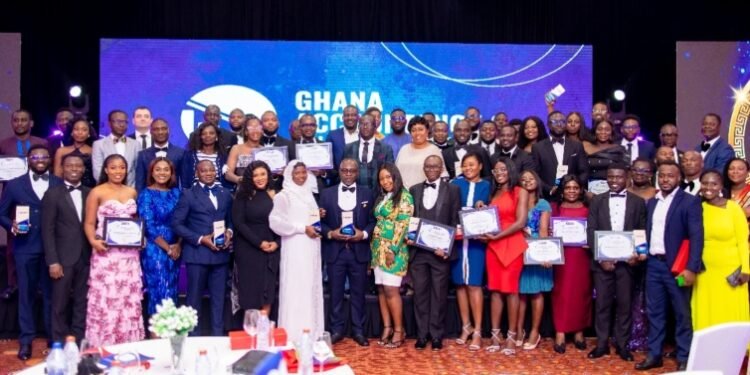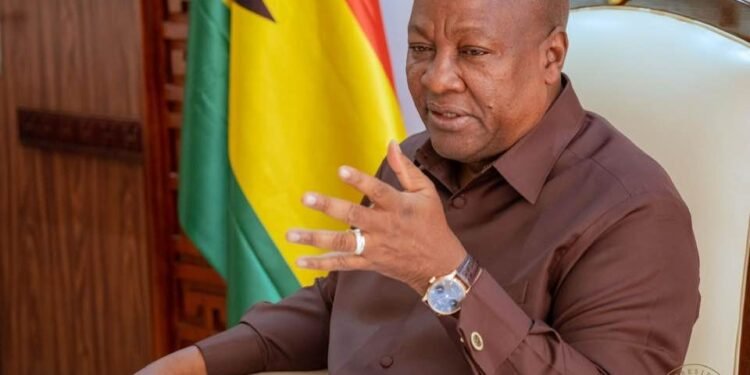The Public Interest and Accountability Committee (PIAC), the country’s independent petroleum revenue watchdog, has sworn in five new members to replace outgoing representatives whose tenure elapsed this year.
This induction marks a significant transition for the influential oversight body tasked with ensuring transparency and accountability in the management of the country’s oil and gas resources.
“Established under the Petroleum Revenue Management Act (PRMA), 2011 (Act 815), PIAC provides citizens with independent oversight of how petroleum revenues are collected, disbursed, and used. It also ensures that petroleum wealth contributes to sustainable development and equitable growth.”
PIAC
PIAC Membership

The new appointees, drawn from diverse backgrounds, include Mr. Zamboanga Rufai Saminu of the Ghana Journalists Association (GJA), Ms. Veronica Adigbo of the Ghana Bar Association (GBA), and Nana Soglo Alloh IV, representing the National House of Chiefs.
Meanwhile, the mandates of Mr. Christopher Opoku Nyarko of the Ghana Extractive Industries Transparency Initiative (GHEITI) and Ms. Sena Dake of the Institute of Chartered Accountants, Ghana (ICAG) on the committee were renewed, allowing them to continue representing their respective constituent bodies.
As stated by Mr. Samuel Arkhurst, the Coordinating Director for Technical Services at the Ministry of Finance, who presided over the swearing-in ceremony, the new and renominated members are expected to “sustain PIAC’s mission of promoting transparency, accountability, and prudent management of petroleum revenues to benefit current and future generations.”
Oversight and Informing Policy Reforms

The Public Interest and Accountability Committee (PIAC) has over the years, played a critical role in championing crucial issues in the management of Ghana’s oil and gas resources.
The Committee’s work has informed policy reforms and strengthened public debate around the governance of the country’s natural resources.
“PIAC has been instrumental in spotlighting issues such as delayed disbursement of oil funds, underutilisation of the Ghana Infrastructure Investment Fund (GIIF), and lapses in annual spending reports.”
PIAC
This highlights the Committee’s impact in promoting transparency and accountability within the country’s petroleum revenue management.
Sustainable Development and Intergenerational Equity
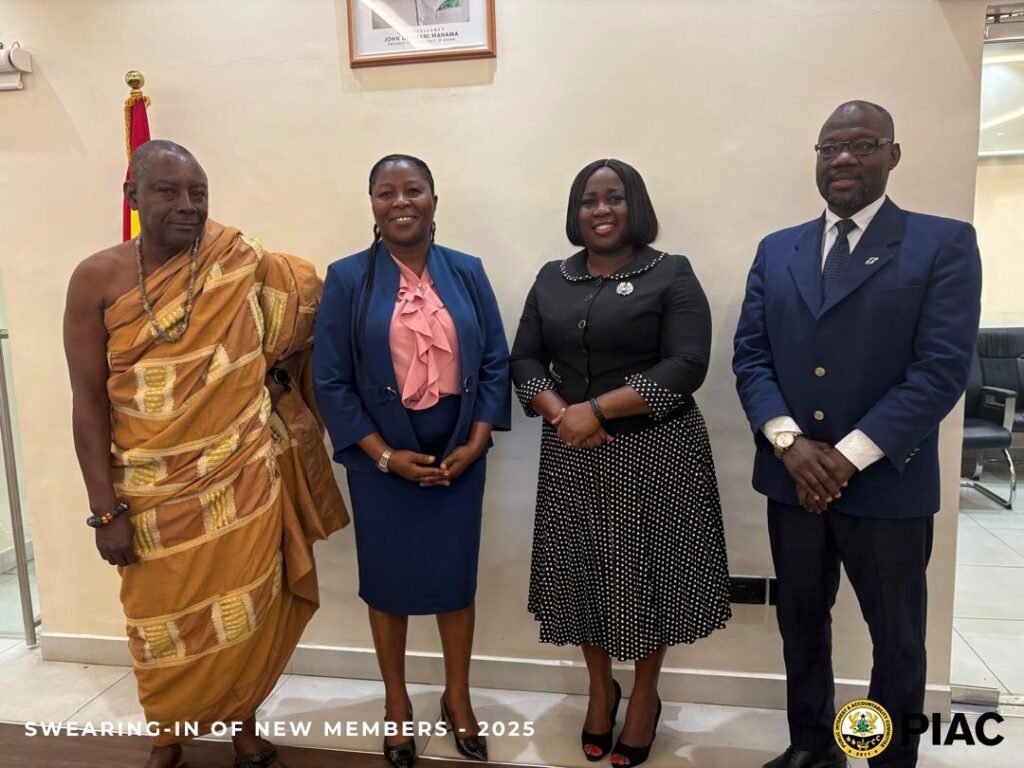
Through PIAC’s rigorous monitoring and reporting, it has been instrumental in identifying and addressing various challenges in the management of Ghana’s petroleum revenues.
The Committee’s work has shed light on irregularities and discrepancies in annual spending reports.
By highlighting these concerns, PIAC has informed policy reforms and strengthened public discourse on the governance of the country’s natural resources.
PIAC’s Operational Relevance
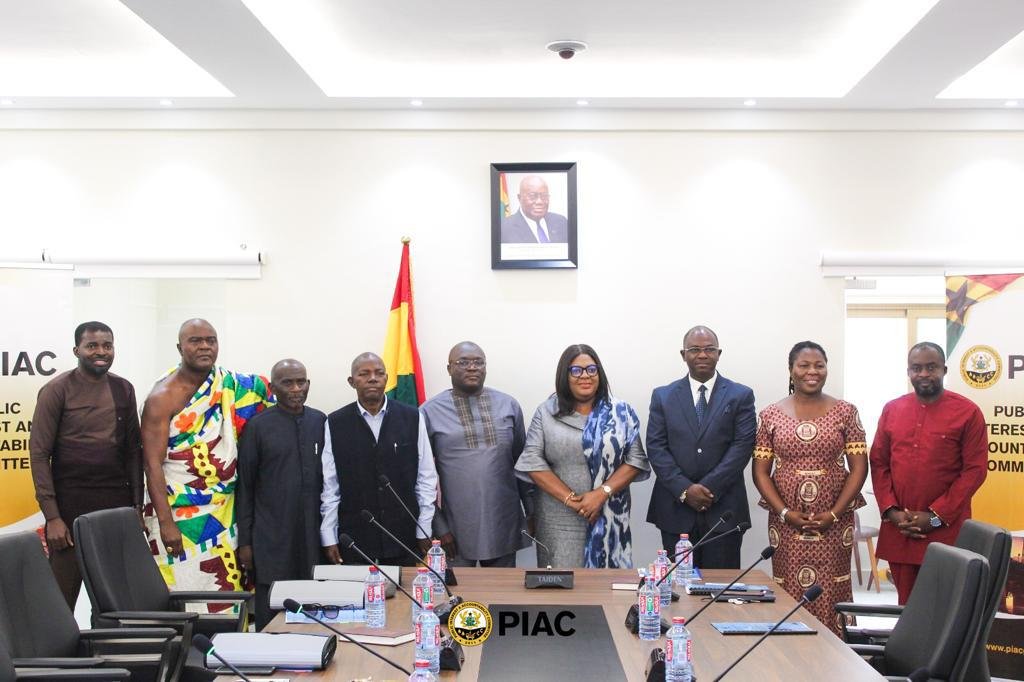
The induction of these five new members, along with the renomination of two existing representatives, underscores the importance of maintaining PIAC’s independence and expertise in fulfilling its crucial mandate.
The new appointees, hailing from the media, legal, and traditional sectors, bring a diverse range of perspectives and experiences that will bolster the Committee’s ability to effectively oversee the management of Ghana’s petroleum wealth.
While the newly sworn-in and renominated members assume their seats, they are tasked with upholding PIAC’s mission of promoting transparency, accountability, and the prudent utilization of oil and gas revenues.
This responsibility is particularly crucial in the face of evolving challenges and emerging trends in the energy and extractive industry, which require vigilant oversight and timely interventions to safeguard the interests of the Ghanaian people.
The PIAC’s work has been widely recognized for its impact on policy reforms and public discourse.
With the new members now in place, PIAC is poised to continue its vital work, leveraging its independence and expertise to drive meaningful change and secure a more sustainable and equitable energy future for Ghana.
READ ALSO : Spokesperson Backs Bryan Acheampong as NPP’s Bridge to 2028

